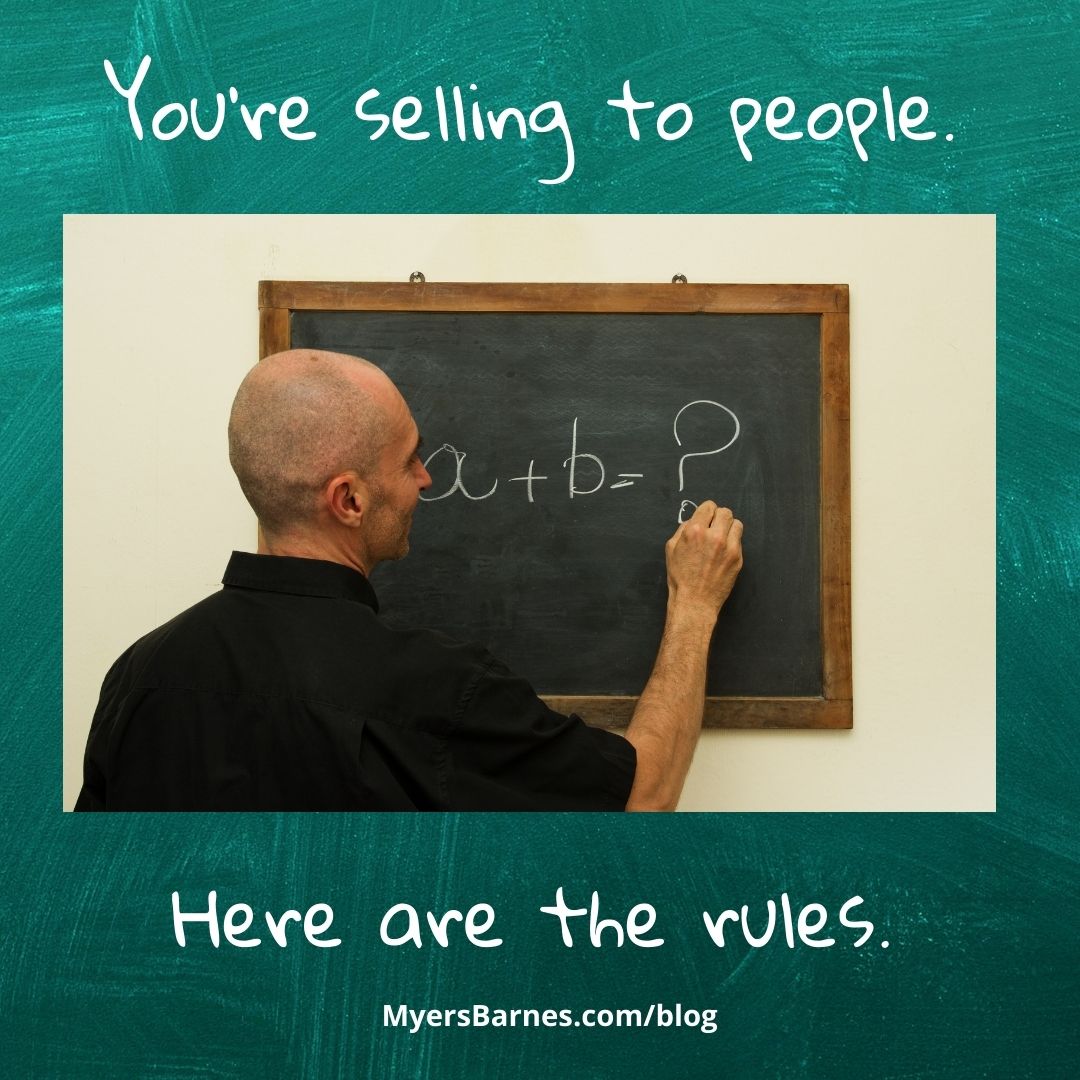 It’s easy to give too much power to a buyer. You stumble with dealing with price resistance. You let their demands push you beyond what you should give. And maybe you accept a “No” as the end of the sales opportunity. Let me remind you, you’re selling to people. Here are the rules.
It’s easy to give too much power to a buyer. You stumble with dealing with price resistance. You let their demands push you beyond what you should give. And maybe you accept a “No” as the end of the sales opportunity. Let me remind you, you’re selling to people. Here are the rules.
You control the conversation.
The buyer has come to you as a resource to get what they want. Embrace that reality but don’t confuse it with privilege. You should control the conversation with confidence, honesty, and the desire to match them with the right home. That means asking the right questions, probing to uncover their underlying motivators. Why are they looking for a new home? How does location impact their decision? What is it about their lifestyle that dictates specific features as a must versus a nice option. Before you dive into showing homes, get to know your buyer so you can demonstrate your superb active listening skills, knowledge of homes and buying, and genuine interest in meeting their needs.
Words are only as meaningful as you are.
Why do salespeople have a reputation for being untrustworthy? Sadly, too many of them are so laser-focused on the sale that they leave their principles elsewhere. More than ever before, today’s buyers are savvy. They’ve done their research. They’ve searched online and gathered lots of opinions and suggestions. Most of all, they can sense when you’re being disingenuous. Don’t rehearse your sales pitch. Believe it! Show your buyers that you are sold on the product and they will jump on board.
Value is not a function of price.
A person who tells you, “That’s too expensive” or “I can’t afford that” is actually saying that you haven’t effectively communicated the value. Affordability is a function of our priorities. One person might spend a small fortune for a pair of shoes because the product makes them feel great. Another might be perfectly satisfied with a much less expensive choice. It’s all about the value you perceive. In homebuying, you sell the experience of living in a home, not the price. It’s a combination of the benefits of the location, the neighborhood, the home, its features, and the solid reputation of the builder. Once they buy into that experience, they’ll appreciate the value.
Buying a home is an emotional experience.
You’re guiding a customer to make what is likely the largest purchase in their lifetime. This isn’t merely an acquisition. It’s their home. Respect the emotional aspect of the experience. Demonstrate your understanding. Empathize with the decision they’re trying to make. When they see you as a trusted advisor—and a human one—you’ll establish and nurture the relationship they want and need for this purchase.
They want to buy.
There are no lookie-loos in this market. If they’re coming to you, they’re already convinced they want to buy a home. The only question is whether or not they buy one from you.
It’s natural to want more.
Don’t roll your eyes when a homebuyer asks for something extra—like free upgrades, closing cost credits, or a discounted price. When making a purchase as large as this, people naturally expect to get a break on something. That doesn’t mean you have to grant it, but you can also be prepared by holding back on something you’re comfortable throwing in, just to satisfy them.
You’re one person selling to another person. It’s not an alien concept. Treat them the way you’d like a salesperson to treat you.


